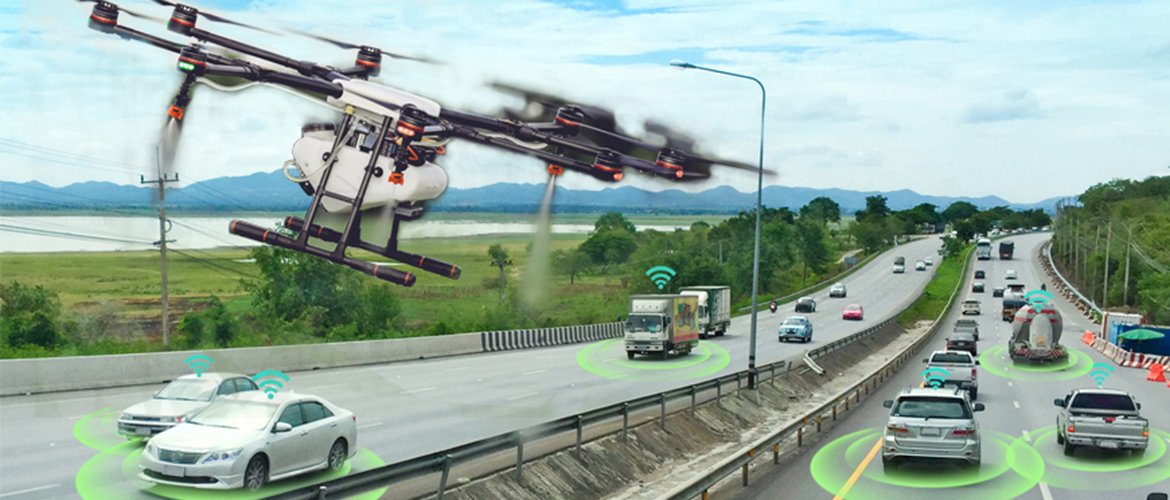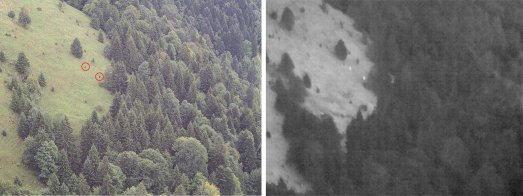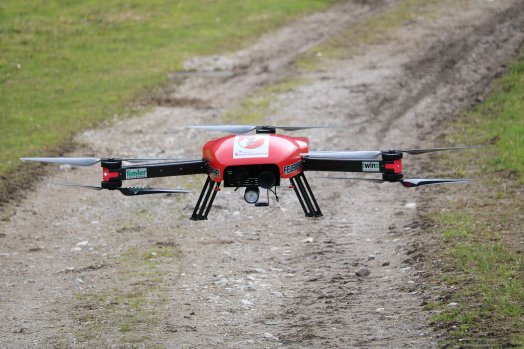
New mobility forms in the Kufstein region
Innovations for automated mobility such as drones, tractors, commercial vehicles and buses offer varied applications for the Kufstein region and the vision of autonomous mobility. Thus, autonomous vehicles and flying devices can, e.g., support local public transport or agriculture. New mobility forms will prospectively make traveling more attractive and transport more environmentally friendly and user-oriented. Furthermore, agriculture can greatly benefit from new innovations, for example for controlling agricultural cultivated plants or wildlife searches.
Many application areas
A LEADER-funded study of DLR Gesellschaft für Raumfahrtanwendungen mbH (DLR GfR mbH), a company of the German Aerospace Center (DLR), the Municipal Works Kufstein and FH Kufstein Tirol is examining innovative application cases for autonomous mobility. The safest and most reliable automated applications are realized in follow-up projects as for example in drone deployments by the District Fire Brigade Kufstein. The fire brigade has already recognized the potential of drone applications and actively deploys these to search for objects and persons by means of a camera or thermal imaging camera. Within the context of the study, the District Fire Brigade is especially interested in the monitoring and securing of airways for autonomously flying vehicles.
Kufstein as pilot region
Testing autonomous mobility systems and its implementation complement the Digital Roadmap Austria, the digital strategy of the Austrian federal government, and gradually equip the region with a modular expansion of the digital infrastructure. For this purpose, DLR GfR mbH and the Municipal Works Kufstein, together with FH Kufstein Tirol formed exemplary individual areas for validating automated means of transportation.
Researchers examine transport means with respect to traffic safety in a process that is independent of the manufacturer. Each individual area forms a challenge for prospective traffic. For example, the campus of the university in the inner-city of Kufstein provides a challenging urbane environment for navigation systems and mixed traffic with vehicles and pedestrians. Aerial applications as well as applications on steep stretches and tight curves on the ground are to be tested in other areas.
Research object and status quo
Current studies and initiatives in Austria merely observe one mobility form, i.e. either passenger cars or buses. The project “Autonomous mobility in the Kufstein region” develops secure, holistic mobility solutions for any means of transportation.
In the study, researchers developed relevant points that are to ensure safe autonomous mobility. The study examined a reliable infrastructure for safe communication also with respect to large data volumes and navigation systems that work in remote areas without satellite reception.
Project partner
DLR GfR mbH operates the control center of the European satellite constellation Galileo and is therefore an ideal partner for this project. As a regional provider for mobility among other things, the Municipal Works Kufstein benefits greatly from the project and provides valuable input. FH Kufstein Tirol is a competent scientific partner for the project team due to its expertise in the area of digitization, specifically in intelligent products, autonomous systems and data analysis.
Results of the final event on 12/13/2018
In conclusion of the project, DLR GfR mbH and Rector and Project Manager Prof. (FH) Mario Döller presented the results of the study on 12/13/2018 at FH Kufstein Tirol. Further plans and possible follow-up projects for autonomous mobility in the Kufstein region were also outlined.


